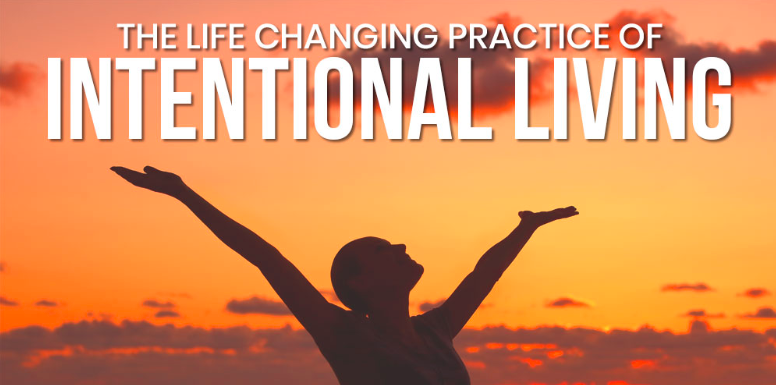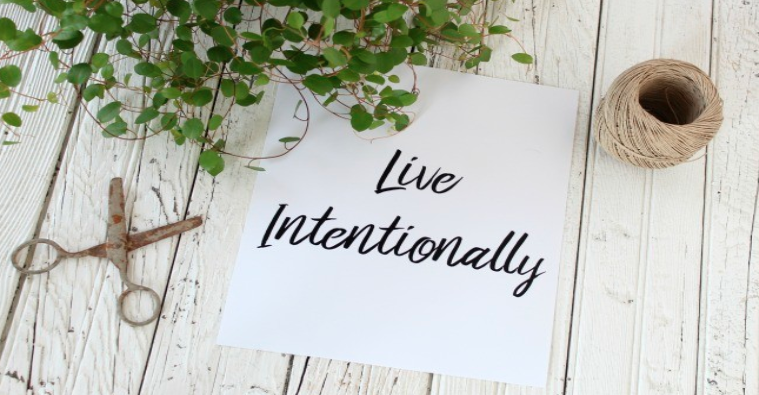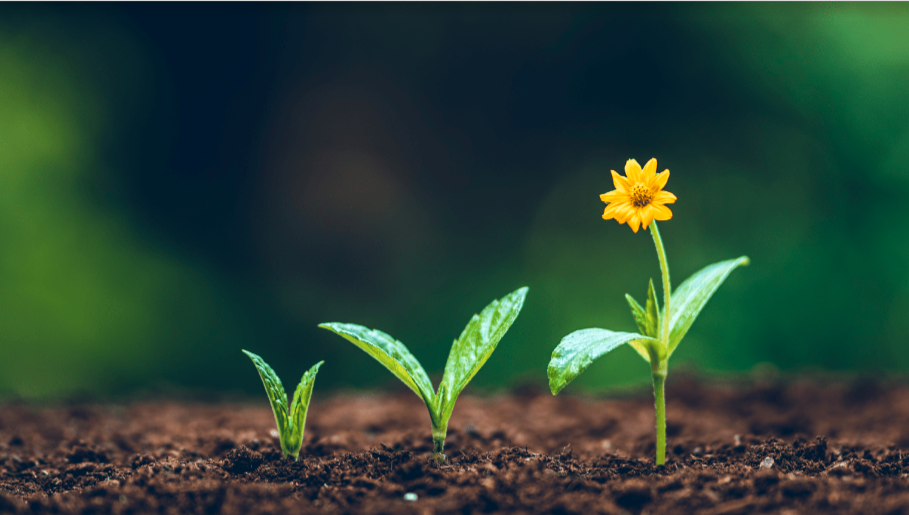Living Intentionally is a lifestyle that one can choose for themselves to enhance one’s quality of life and live life to its full potential. We as humans collectively choose our own lifestyles so why not choose a lifestyle that enables us to enjoy life in its full capacity and be the best version of ourselves? Living intentionally essentially means aligning our life with our values, morals and ethics and consciously choose positivity, mindfulness and setting goals in accordance to our choices. To live an intentional life, we need a clear understanding of our purpose and passion and make deliberate choices to reflect what is more important to us. Becoming intentional can help us maintain a positive mindset, reach goals, experience more clarity and be more present. It can also increase our focus and commitment and bring more purpose and meaning to our lives.
Intentionality is primarily ascribed to mental states, like perceptions, beliefs or desires, which is why it has been regarded as the characteristic mark of the mind by many philosophers. It helps in developing our personality, our perspective on things and to bring mental clarity. Living Intentionally is a direct road to success and can help us in the following aspects:
ALIGNING OUR VALUES AND BELIEFS: Every human being has their own set of values and beliefs which are born out of nature or nurture and experience. Aligning our lifestyle with our belief system brings us peace of mind and allows us to live a dignified life.
REALIZING OUR GOALS: Living intentionally helps us to consciously pursue our passion and mold our situations in life and work towards our goal and ultimately achieving them. It helps us to stay on the necessary path and not be distracted by meaningless things that can steer us away from our goals in life.
MINDFULNESS AND STAYING PRESENT: Nowadays, many things call for our attention at the same time and we forget living in the moment. We might not engage in activities mindfully and not make the most of our time which might result in feeling guilty. We forget to enjoy our present moment and engage in activities that fosters healthy relationships and brings us true happiness. Intentional living helps us to be more mindful of our choices and stay more focused in our present. It increases our mental clarity, focus and reduces stress.
SELF-AWARENESS: Developing sufficient self-awareness is essential for intentional living. This means being aware of your thoughts, emotions, and behaviors and their impact on yourself and others. By being self-aware, we can identify areas where we need to make changes and develop strategies to improve. It involves actively identifying our values, priorities and goals and most importantly aligning our actions with them.
SATISFACTION: A satisfied life leads to a happy and healthy life. Living intentionally can lead us to a more fulfilling and satisfied life. It can help us to avoid the feeling of drifting aimlessly and provide a sense of purpose and direction.
DELAYED GRATIFICATION: Living Intentionally can help us control our impulses and not act upon it which leads to weaker control over our desires and can steer us away from our purpose. It helps us to delay our gratification after we achieve our goals so that we can fully enjoy its rewards. It positively reinforces us to stay in the right direction and work towards achieving our goals.
HEALTHY BOUNDARIES: When we are more aligned with our wants, values and goals we spend more time towards behaviors that help us achieve those goals. Being intentional helps us to make informed choices and say ‘no’ to things that do not serve us and/or drain our energy. It helps us to protect our energy that in return brings us joy and positivity.

Living intentionally is an art and helps us to answer questions of ‘why’, ‘hows’ and ‘whats’. It helps us to live a balanced life that aligns with our values and goals and helps us to make informed decisions. At its core, intentional living means making real, intentional decisions to live in the moment, practice mindfulness, and create the life we want. It means making decisions every single day about how we want to spend our time. Intentional living can incorporate a lot of different practices, like mindfulness and slow living. Some of the ways we can practice Intentional Living are as follows:
SETTING MEASURABLE GOALS: we should know our values and set goals in accordance to those values which will help us live more intentionally.
ESTABLISHING DAILY ROUTINES: Create consistent, intentional morning and evening routines to adhere to helps us stay in touch with ourselves. Intentional habits that structure our day around our goals will move us closer to them.
MAKING A VISION BOARD: Making a vision board will help us stay accountable to the goals that we have created and stick to our plan of achieving them in a clear stepwise manner.
PRACTICE DECLUTTERING: Decluttering our minds through journaling or exercising and decluttering our space helps with mental clarity, focus and increases our attention span.
TAKING TIMELY BREAKS: Taking breaks often allows us to be kind and compassionate towards ourselves and living room for mistakes. Being patient to ourselves and taking breaks can help us validate our emotional and intellectual experiences better and be less judgemental about ourselves.
SETTING A MORNING INTENTION: to practice our values day to day, we can practice an intention every morning. Our intention may be a few words, a sentence or practicing mindfulness and being grateful. It might serve as a reminder as to how we would like to behave and make our choices according to how we would want to behave.
MONITOR OUR MENTAL HEALTH: To live an intentional life we must stay positive and keep checking on ourselves everyday. To do that, we can keep a mental health diary, talk to our friends, family or partner or engage in activities that bring us joy and pleasure.
BUILD STRONG RELATIONSHIPS: Building a strong and supportive network can create a safe space whenever we feel overwhelmed with our lives. Having strong dependable and healthy connections with supportive people are a great way to stay accountable and feel encouraged when it comes to intentional living.
To recap, intentional living is a daily habit that we must remind ourselves to practice and inculcate into our daily lives to reap its reward. An intentional life brings joy, happiness and lowers stress and anxiety. But sometimes, particularly when we are making some changes, it can be difficult — especially if our current intentions don’t line up with what we have learned in our early life. We must remind ourselves that it’s totally natural to feel a range of emotions while on an intentional living path. After all, we are human beings and we are all doing the best we can.
















